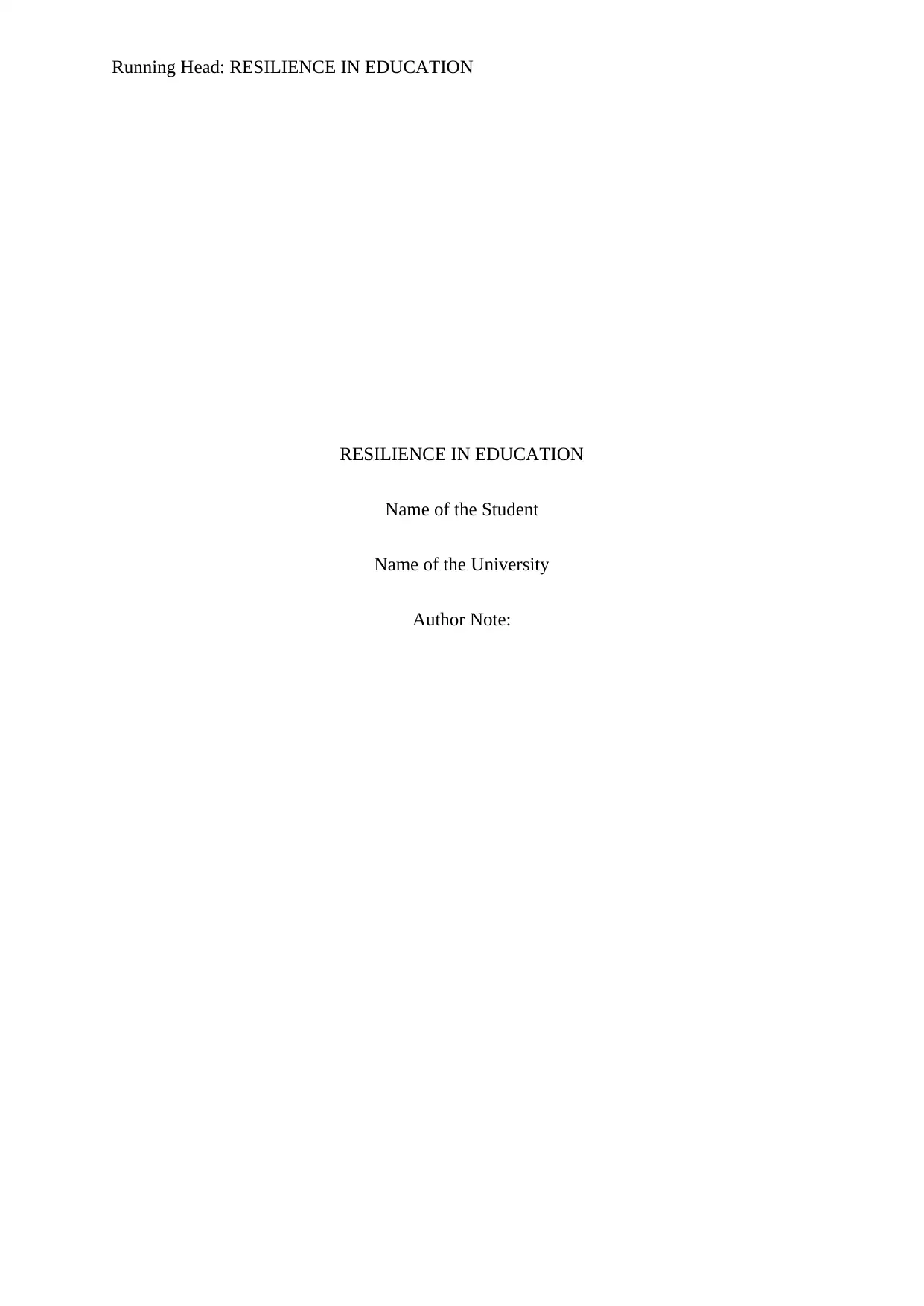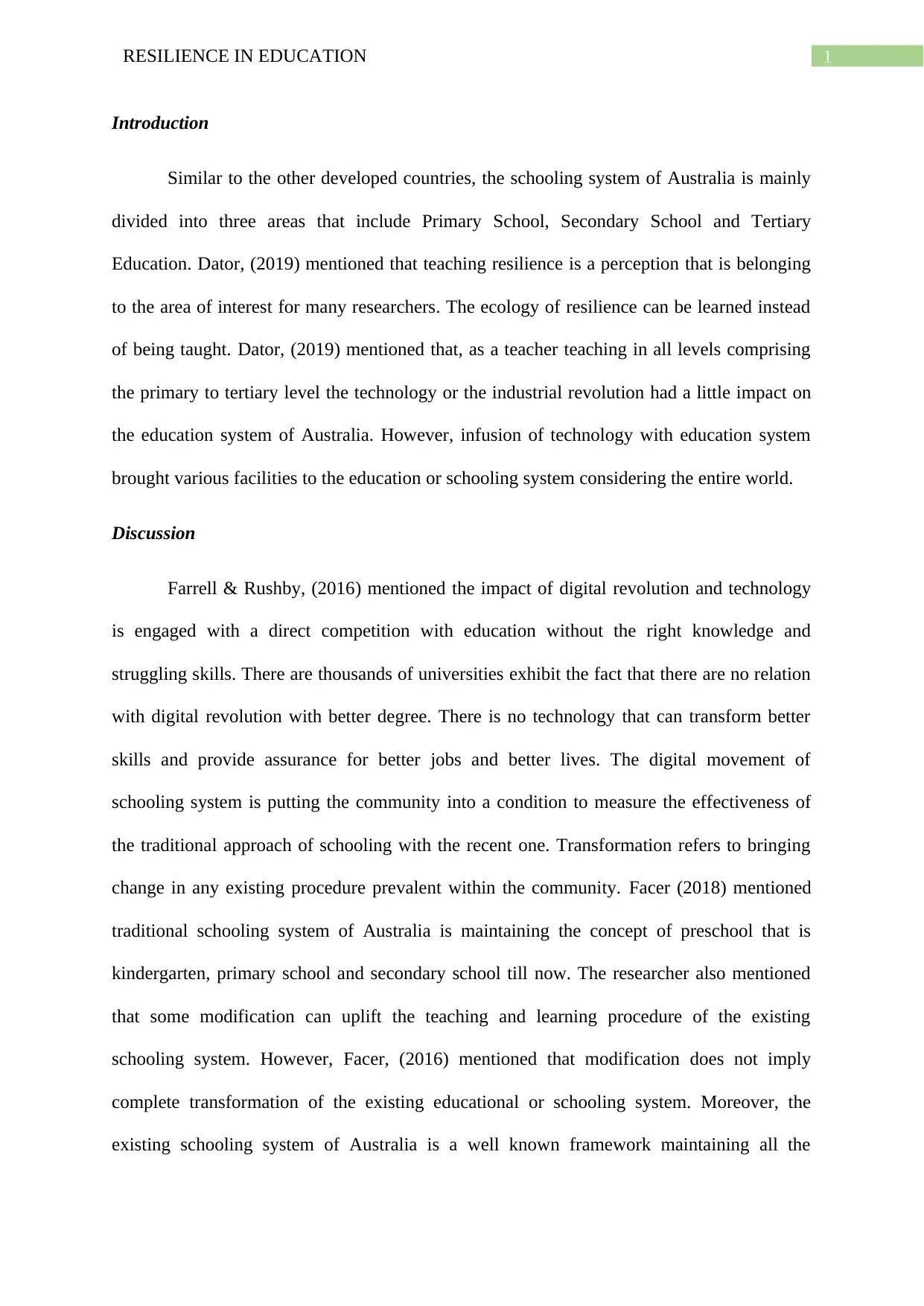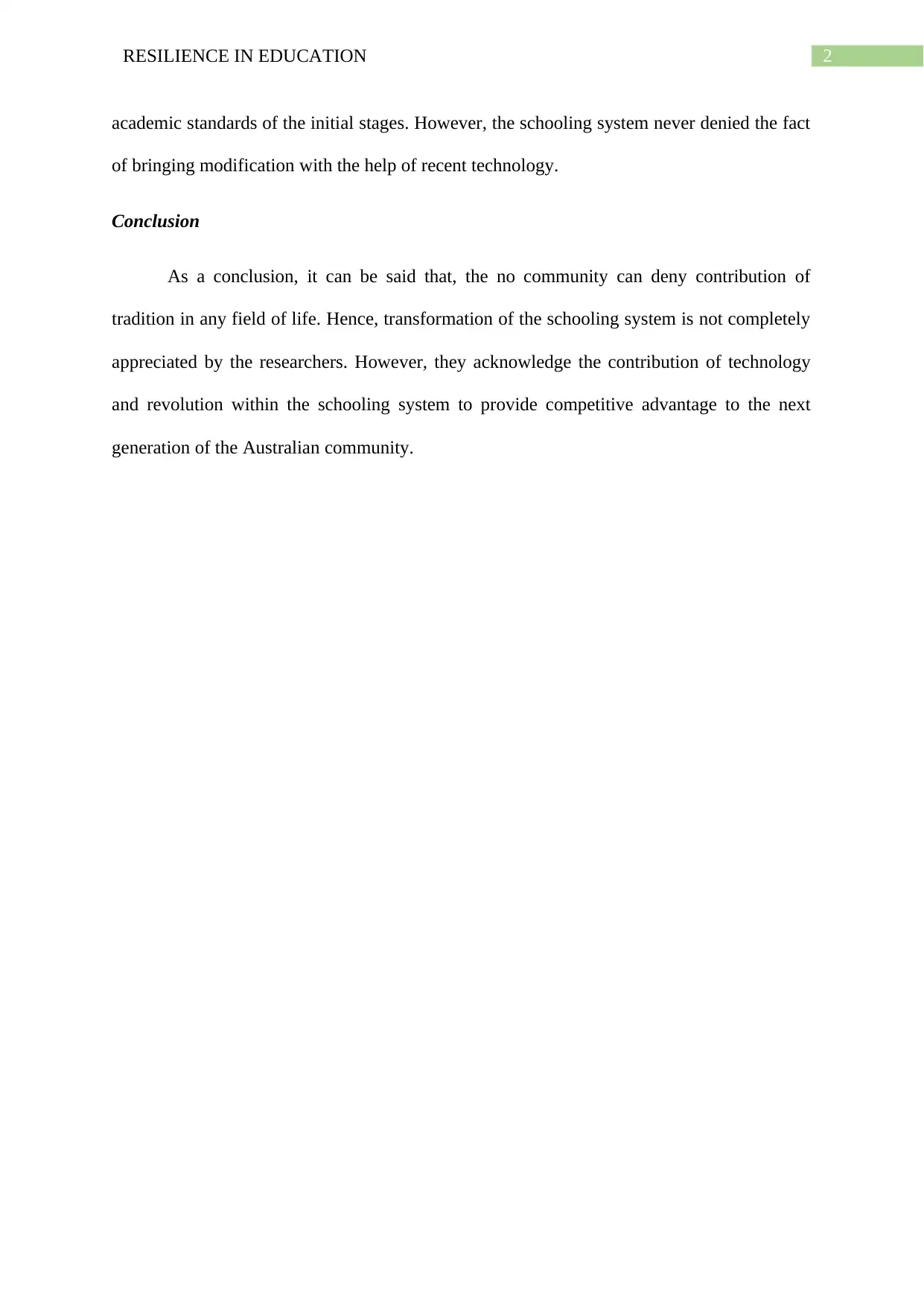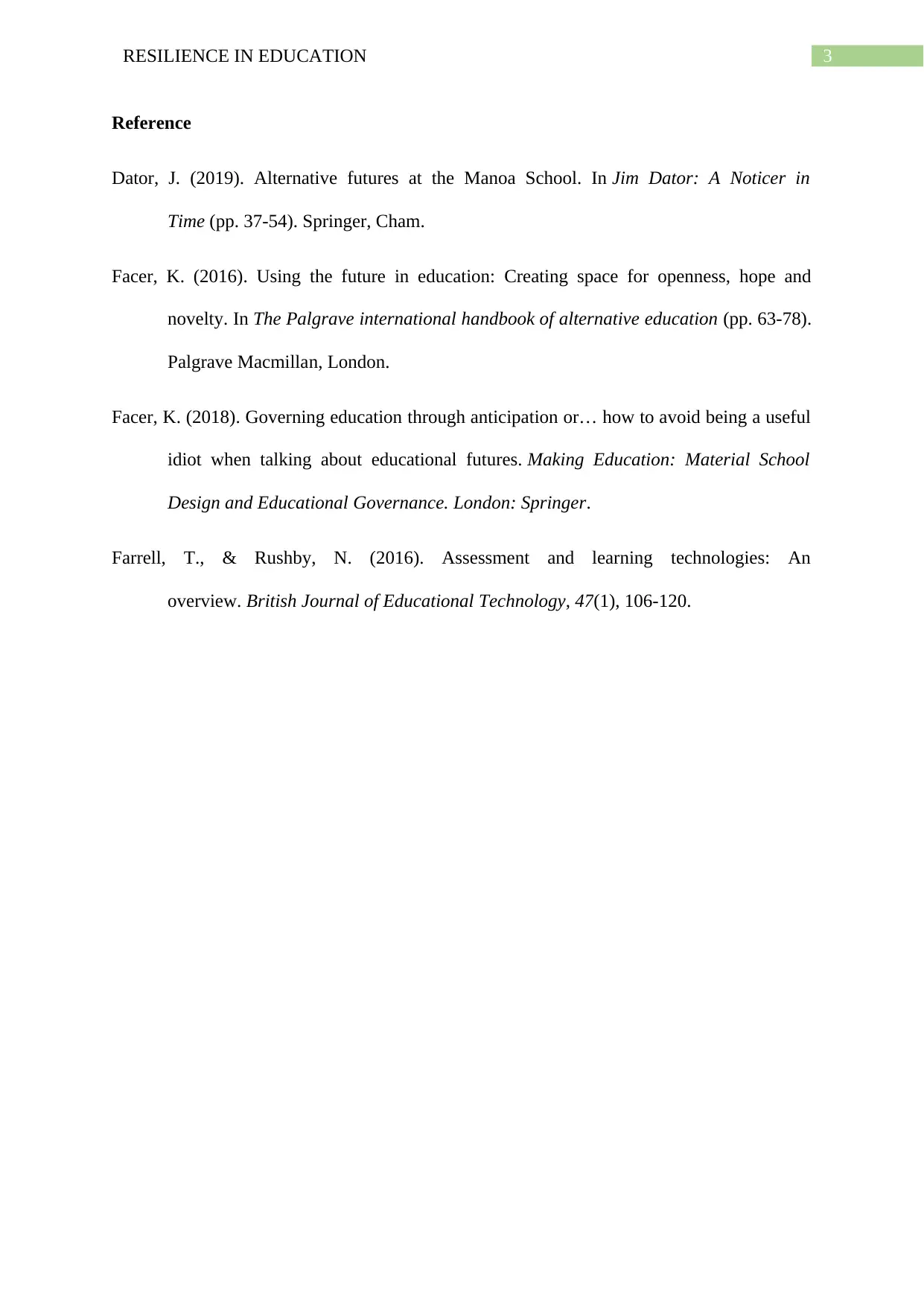Transforming Education: Exploring Resilience in the Schooling System
VerifiedAdded on 2022/09/14
|4
|594
|46
Essay
AI Summary
This essay delves into the transformation of the education system, particularly focusing on the resilience of the schooling system in the face of change and the integration of technology. It begins by acknowledging the traditional structure of the Australian education system, from primary to tertiary levels, and highlights the impact of the digital revolution on teaching and learning. The essay references key research by Jim Dator, Nick Rushby, and Keri Facer to examine the challenges and opportunities presented by technological advancements in education. It discusses the resistance to change within the system and explores how to balance tradition with innovation to provide a competitive advantage to the next generation. The conclusion emphasizes the importance of acknowledging the contributions of tradition while embracing the benefits of technology to improve the learning experience.
1 out of 4






![[object Object]](/_next/static/media/star-bottom.7253800d.svg)